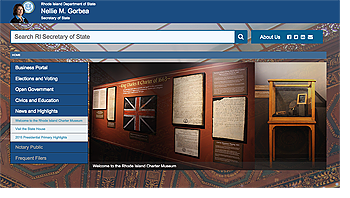 This book should suck. Really. The title clearly over-promises (“How To Have a Good Day,” indeed) and the text attempts three of the most difficult non-fiction high-wire acts: popularizing science without making stupid errors, presenting business advice that doesn’t trigger your bullshit detector, and giving self-help tips that don’t fall off into either banality or featherbrained woo.
This book should suck. Really. The title clearly over-promises (“How To Have a Good Day,” indeed) and the text attempts three of the most difficult non-fiction high-wire acts: popularizing science without making stupid errors, presenting business advice that doesn’t trigger your bullshit detector, and giving self-help tips that don’t fall off into either banality or featherbrained woo.
Nearly impossible. And yet, somehow, Caroline Webb has pulled it off.
“How to Have a Good Day” is a meticulously documented, step-by-step approach to leveraging contemporary research in cognitive science and behavioral economics to solve the real problems that keep us from being effective — and happy — in our day-to-day jobs and lives. And it’s not aimed at helping you “feel” better, but, rather, outlines a rigorously pragmatic approach to actually *doing* better: analyzing situations more effectively, making better decisions, and communicating with others with empathy and impact.
Every piece of advice comes with a footnoted scientific study — often more than one — buttressing its claims. And Webb, a former partner at a management consulting firm, peppers the text with mini-case studies, anecdotes from business leaders across a wide spectrum of industries that reinforce each of the learnings. Taken together, these present a compelling argument that the advice doesn’t just work in the lab, but in the rubber-meets-the-road environments of the shop floor and the conference room.
Webb opens the book with a section on the science. There are some familiar big ideas (the brain’s two-systems of deliberate thought and automatic or pre-conscious process; the fight-flight-freeze response which can keep us open to discovery or shut us down in defensive threat reaction; and the mind-body loop in which influence can go both ways) which Webb will weave throughout the book. If there is a core theme, it would be that by better understanding how our brain processes the world, we can become aware of and avoid the shortcuts and pitfalls of our unconscious biases and blind spots — and in so doing, increase the odds of our having successful interactions. (And that, often, it can be as simple an act as setting intentions that alerts the brain to the salient features it should be picking out.)
If you’re familiar with cognitive science (or phenomenology) some of this may be sound obvious, but Webb’s skill is in taking these insights and showing throughout the rest of the book how they lead to dysfunction in our everyday lives. We do not directly experience the world, but rather offload much of our administrative processing to sub-conscious systems — and therein lies the problem: we make snap judgements, improperly weight data, and can miss things that are literally right in front of our eyes.
One example Webb uses to demonstrate this kind of inattentional blindness is the famous “gorilla in the basketball game” video (if you’re not familiar, here’s a helpful NPR backgrounder). Webb offers a variety of tested methods for re-focusing our brain’s attention, keeping us in a creative, open state, and engaging the teams around us in ways that help keep them working at their full potential. Hint: It can be as simple as using the “yes…and” familiar to anyone who’s done improv comedy to keep other team members from going into the “amygdala hijack” of defensive mode.
One weird trick I found particularly compelling was harnessing our social brain to solve abstract logic puzzles. Webb uses the example of the Wason selection task, in which you have four cards, showing D, F, 3, and 7, and are asked which cards you would need to turn over to test the truth of the assertion that any card with a “D” on one side must have a “3” on the other. A majority of people get this wrong. But then Webb suggests reframing it in social terms:
“You’re a bartender. You have to make sure that anyone drinking beer in your bar is over twenty-one, or you could lose your license. Each of the cards below represents information about four of your patrons. One side of the card shows what they’re drinking, and the other side of the card shows their (real) age. Which card or cards to you need to turn over to see if the twenty-one-and-over rule is being violated?” The cards are: Beer, Coke, 25, and 16.
Three times as many people get this right, because they’re leveraging their social knowledge. And as Webb points out, we can easily apply this framing to everyday conceptual challenges to provide extra processing power. And that’s just one cherry-picked example. The 300 pages of this book are packed with equally powerful bits of advice.
Webb conveys this all with style and wit, in prose that is at once warm and unpretentious and yet totally at home with the complexities of the evidence she marshals to support her arguments. It is well-written down to the footnotes, and contains two helpful appendices on applying the book’s insights to the two main productivity killers of the business world, meetings and e-mail. I came away with half-a-dozen ideas for things to do differently (some as simple as single-tasking and batching the times I respond to e-mails) and I can virtually guarantee that you’ll find things that will make your days more productive and, yes, happier.
“How to Have a Good Day” by Caroline Webb, from Crown Business. Web site, Facebook. Available on Amazon or IndieBound and many other retailers.
Full disclosure: For several years, I worked with Ms. Webb’s husband, but I have never met her. I purchased the book myself, and received nothing in exchange for this review. One of the advantages of being a freelancer is that I get to pick what I write — if I don’t like a book, I simply don’t review it.
 This book should suck. Really. The title clearly over-promises (“How To Have a Good Day,” indeed) and the text attempts three of the most difficult non-fiction high-wire acts: popularizing science without making stupid errors, presenting business advice that doesn’t trigger your bullshit detector, and giving self-help tips that don’t fall off into either banality or featherbrained woo.
This book should suck. Really. The title clearly over-promises (“How To Have a Good Day,” indeed) and the text attempts three of the most difficult non-fiction high-wire acts: popularizing science without making stupid errors, presenting business advice that doesn’t trigger your bullshit detector, and giving self-help tips that don’t fall off into either banality or featherbrained woo. Secretary of State Nellie Gorbea today announced the launch of a
Secretary of State Nellie Gorbea today announced the launch of a 
